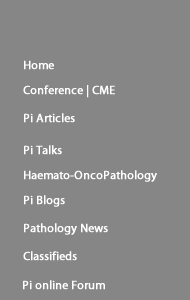


Launch Of The Tissue-Based Map Of The Human Proteins
MUMBAI, India. 06 November, 2014
A decade after the completion of the human genome, the Human Protein Atlas program today launched a tissue-based atlas covering the protein complement of the human genome. Based on 15 million annotated images, an interactive database has been created to show the distribution of proteins in all major tissues and organs in the human body.
A decade on from the Human Genome, the Human Protein Atlas, a major multinational research project supported by the Knut and Alice Wallenberg Foundation, Sweden, today launched an open source tissue-based interactive map of the human proteome. The Human Protein Atlas maps for the first time the human proteins in all major organs and tissues, showing both proteins restricted to certain tissues, such as the brain, heart, or liver, and those present in all. This important new knowledge resource will prove invaluable to researchers worldwide, particularly in human health since the vast majority of drugs on the market are designed against proteins. As an open access resource, it is expected to help accelerate the development of new diagnostics and drugs to benefit mankind.
Twenty-six Indian medical professionals, mostly surgical pathologists, over a period of eight years from different parts of India, headed by Dr Sanjay Navani at Lab Surgpath, Mumbai, making an unprecedented effort, have evaluated nearly 13 million high-resolution micrographs of stained tissues. The high-quality data on about 80% of human proteins provides the backbone of the atlas. This is the first time an Indian private pathology laboratory has been associated with cutting-edge research internationally providing a classic example of first and third world collaboration. The interactive database is aimed for surgical pathologists looking to educate themselves in immunohistochemistry and researchers interested in human biology and translational medicine. Data and images from 24028 antibodies targeting 16975 proteins in 48 different types of normal tissues and 20 most common forms of cancer are freely viewable on the protein atlas website ( www.proteinatlas.org).
The availability of the atlas provides a unique resource to the surgical pathology community in India where immunohistochemistry is still an unobtainable facility for many laboratories. Specific queries for a particular antigen expression in a particular tissue or cancer can be viewed from the comfort of one's own computer providing a quantum leap for immunohistochemistry education and demystification.
"It is our great hope," says Navani, Site Director in India for the Protein Atlas, "that India will build on this base and that this Indian effort will promote collaboration between groups that utilize the opportunity to further research in this country."
| PathoIndia Congratulates Dr. Sanjay Navani and his team for their wonderful contribution to the Human Protein Atlas project. |
Copyright © 1999 PathoIndia
